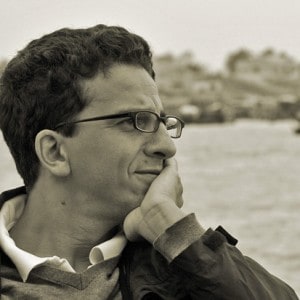We recently spoke with Alexander Barkawi, founding director of the newly launched Council on Economic Policies, an international
Half German and half Egyptian, Alex has been interested in sustainability since his teenage years. After studying economics at the University of St. Gallen and earning a Ph.D. at the university’s Institute of Sociology, he joined SAM, the asset management partner of Dow Jones for the Dow Jones Sustainability Indexes, where he worked for more than 9 years. “I enjoyed those years immensely,” he reflects. “The more money we moved behind the indexes the more important it was for companies to be included in them. We followed – and SAM and Dow Jones still follow today – a best-in-class approach in every sector so companies competed with each other with every annual review. We created a dynamic where companies even began to structure variable payments to their boards dependent on whether they made it into the Dow Jones Sustainability Indexes.”
After leaving SAM in 2009, and next to his work for oikos, Alex spent time reflecting on the critical role policy must play in the shift to a sustainable economy. “To what extent companies integrate sustainability into their business practices will depend on how it aligns with their long-term profitability, and that I see is very much defined by policy frameworks,” he says. “Ensuring that price signals support sustainable behavior depends on both the day-to-day activity of market participants as well as smart policymaking for the long-term.” [For more thought on this topic see Tony Greenham’s reflection on “Why We Need Investment Grade Policymaking,” featured in Capital Institute’s Braintrust series.]
CEP will focus its work on three policy areas: fiscal, monetary, and trade. In the realm of fiscal policy CEP will explore how tax systems might be structured to support job creation, social cohesion, and sustainable use of resources. The first research efforts will be proposals for such tax structures in Switzerland, Egypt, and South Korea. “Our goal is to come up with a proposal and over the years, through campaigning and advocacy, make that proposal a key reference point in policy debates,” Alex reports. The CEP’s monetary policy research will begin with an examination of the economic, social and environmental impact of the quantitative easing.
On the trade policy front, two initiatives are being considered. First, trade in financial services and sustainability will be examined, with reference to how trade agreements influence policy space for financial regulation and drive regulatory convergence. A second project will have a regional focus on trade, particularly in services, as a tool for sustainable development and job creation in the Middle East.
CEP’s founding members represent expertise from both the mainstream and nontraditional global finance, economics, and policymaking communities. They include Ann Florini of Singapore Management University and the Brookings Institution, Dongsoo Kim of the Korea Productivity Center, Gilles Carbonnier a professor at Switzerland’s Graduate Institute of International and Development Studies, Knut Bergmann at the office of the President of the German Parliament and Fellow, Stiftung Neue Verantwortung, Germany, Peter Zollinger partner at Globalance Bank and Council Member, SustainAbility, Raj Thamotheram, President of the Network for Sustainable Financial Markets, and Stephen Boucher, Programme Director of the European Climate Foundation.
Find out more about CEP here. Follow Alex Barkawi at @abarkawi.

